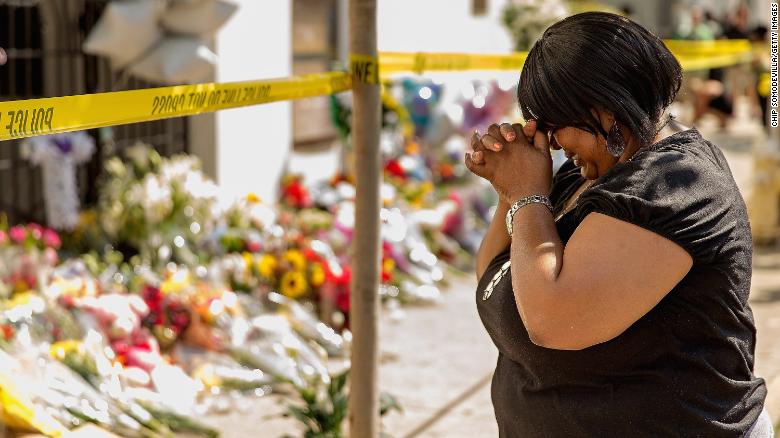(CNN)Virginia Attorney General Mark Herring said Tuesday he will be reintroducing a set of bills in the upcoming 2020 legislative session aimed at strengthening hate crime statuses and punishments for hate crimes.
For the fourth year in a row, Herring said, he will introduce legislation which will update hate crime laws and domestic terrorism laws, and strengthen gun control across the state.
"We have all seen how hate can turn deadly with frightening frequency in America, at a synagogue in Pittsburgh, at an African American church in Charleston and even here in Virginia in our own backyard in Charlottesville," Herring told CNN. "This is a huge problem and it's not going away, which is why we have got to step up and do more about it."
Working with a Democratic majority
The attorney general will bring six bills to the table, he said, and although he's faced rejection for years, this time Herring says he is confident the bills have a shot at being passed.
"In years past, the bills I've introduced have been bottled up in Republican-held committees in our state legislature, which really sent a terrible message to vulnerable communities in Virginia that their commonwealth wasn't standing with them and wasn't going to be there to protect them," Herring said.
However, Democrats won majorities in Virginia's House and Senate in November, giving the party full control of the state's government for the first time in more than two decades.
"There were times when some of these bills didn't even get a hearing. But now I think we're going to get a much different reception from Democratic leadership."
A battle against white supremacy
In the past few years, Herring said he has witnessed a rise in the threat of white supremacists, who he believes have become "bolder, more unapologetic, and less afraid of the consequences of their actions."
In 2019, Herring conducted a series of regional roundtables around the state. What he heard from Virginians who were the victims or witnesses of hate crimes, he said, was "heartbreaking."
"People who have lived in Virginia for decades told me that they now start looking over their shoulders when they're out in public," Herring told CNN. "I had a priest say that after one particular act of violence he started driving home a different way. I heard how a woman saw her elderly father attacked because he was wearing religious headwear."
And when it comes to an increase in the number of hate crimes committed in the state, Herring isn't wrong. Hate crimes in the Commonwealth of Virginia have risen about 31% over the past six years, according to a report from the Virginia State Police.
Every hate crime -- even the ones aimed at just one individual -- is "designed to strike fear in entire communities," Herring said. In an effort to protect vulnerable communities, the bills that will be reintroduced will specifically target white supremacists and those convicted of hate crimes.
One bill will update Virginia's definition of a hate crime and include strengthened prosecutions of hate crimes committed on the basis of gender, sexual orientation, gender identity and disability.
Another bill would give the attorney general and his office the ability to prosecute hate crimes. As of now, hate crimes must be prosecuted at the federal level or through a commonwealth attorney.
Gun control and ending paramilitary activity
One of Herring's main goals, he said, is trying to tighten laws on gun ownership.
One bill will close a loophole in current laws which do not allow violent criminals from possessing firearms by further prohibiting anyone convicted of a hate crime from owning a gun.
Another bill first introduced following the Charlottesville rally in August 2015, which Herring called "the worst white supremacist rally in memory in Virginia," will target militia groups by prohibiting "paramilitary activity by white supremacist militias and similar groups."
One person was killed and 19 were hurt at the Charlottesville "Unite the Right" rally when a speeding car slammed into a throng of counterprotesters.
"The kind of militias we saw, uniformed, heavily armed, marching in formation, that is a private military militia should not be allowed," Herring said. "This measure would give some tools to prohibit that."
"These acts of violence by white supremacists and neo-Nazis and neo-Confederates, these are acts of domestic terrorism designed to strike fear in minority communities," Herring said. It's important to not just speak out against them, but to pair those words with actions."




